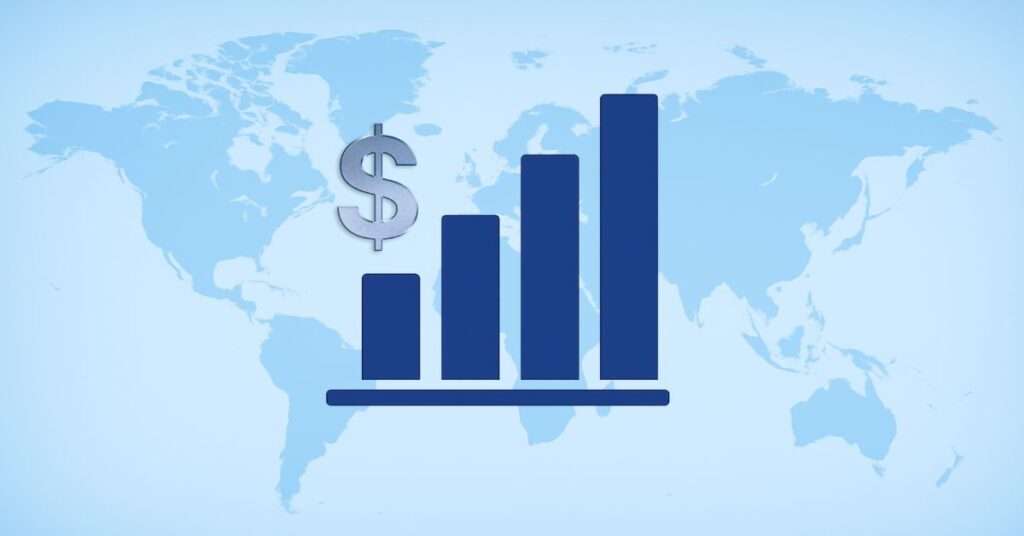In the ever-evolving landscape of global business, revenue remains one of the most accurate indicators of a company’s scale, reach, and economic influence. In this article, we explore the top 10 richest companies by revenue as of 2025—a list that includes powerhouses from diverse industries such as retail, oil & gas, technology, healthcare, and utilities. These corporations collectively generate trillions of dollars each year and shape the direction of global markets and policies.
Understanding the Global Revenue Giants
The companies featured here are not just financial giants; they are also key players in shaping industries and consumer behavior around the world. From American corporations dominating retail and tech, to Chinese and Middle Eastern firms controlling energy and infrastructure, this list highlights the massive scale at which today’s global companies operate. Revenue figures, often updated annually, are sourced from recent financial statements and verified rankings like the Fortune Global 500.
Top 10 Richest Companies in the World by Revenue (2025)
- Walmart (United States): $648.1 billion
- Amazon (United States): $574.8 billion
- State Grid Corporation (China): $545.9 billion
- Saudi Aramco (Saudi Arabia): $494.9 billion
- Sinopec Group (China): $429.7 billion
- China National Petroleum (China): $421.7 billion
- Apple Inc. (United States): $383.3 billion
- UnitedHealth Group (United States): $371.6 billion
- Berkshire Hathaway (United States): $364.5 billion
- CVS Health (United States): $357.8 billion
Walmart, the American retail behemoth, continues to lead the world in revenue thanks to its massive global presence and wide product range. Its dominance in both brick-and-mortar and online retail helps it maintain the top spot. Following closely is Amazon, which has grown beyond e-commerce into cloud computing, logistics, and AI technologies—making it one of the most diversified revenue streams globally.
China showcases its economic might with three state-owned giants—State Grid Corporation, Sinopec, and China National Petroleum—all generating over $400 billion each. These companies are vital to China’s energy infrastructure and industrial supply chain, reflecting the country’s strategic investments in utilities and natural resources.
On the other hand, Saudi Aramco, based in Saudi Arabia, holds the crown for the richest oil company, leveraging the Kingdom’s vast petroleum reserves. Meanwhile, Apple Inc. leads the technology sector with unparalleled revenue generated from its iPhones, services, and ecosystem.
UnitedHealth Group and CVS Health reflect the booming healthcare market in the United States, driven by increasing healthcare costs, aging populations, and a rise in digital health services. Finally, Berkshire Hathaway, the conglomerate led by Warren Buffett, shows the power of diversified investments across insurance, railways, and utilities.
| # | Company | Revenue (USD) | Industry | Country |
|---|---|---|---|---|
| 1 | Walmart | $648.1 billion | Retail | United States |
| 2 | Amazon | $574.8 billion | E-commerce | United States |
| 3 | State Grid Corporation | $545.9 billion | Utilities | China |
| 4 | Saudi Aramco | $494.9 billion | Oil & Gas | Saudi Arabia |
| 5 | Sinopec Group | $429.7 billion | Oil & Gas | China |
| 6 | China National Petroleum | $421.7 billion | Oil & Gas | China |
| 7 | Apple | $383.3 billion | Technology | United States |
| 8 | UnitedHealth Group | $371.6 billion | Healthcare | United States |
| 9 | Berkshire Hathaway | $364.5 billion | Conglomerate | United States |
| 10 | CVS Health | $357.8 billion | Healthcare | United States |
Disclaimer: The revenue figures in this article are based on publicly available data as of May 2025 and are subject to change due to company performance.
Why Revenue is a Key Metric for Ranking Companies
While market capitalization shows how the stock market values a company, revenue reveals how much actual money a company brings in through its operations. It’s a more grounded and consistent metric, especially useful for comparing businesses across sectors. High revenue companies often indicate large-scale operations, wide geographical presence, and significant economic impact—even if their profit margins vary.
Related Articles
- Top 10 Richest Companies by Market Cap
- Top 10 Most Profitable Companies
- Top 10 Richest Startups in the World
